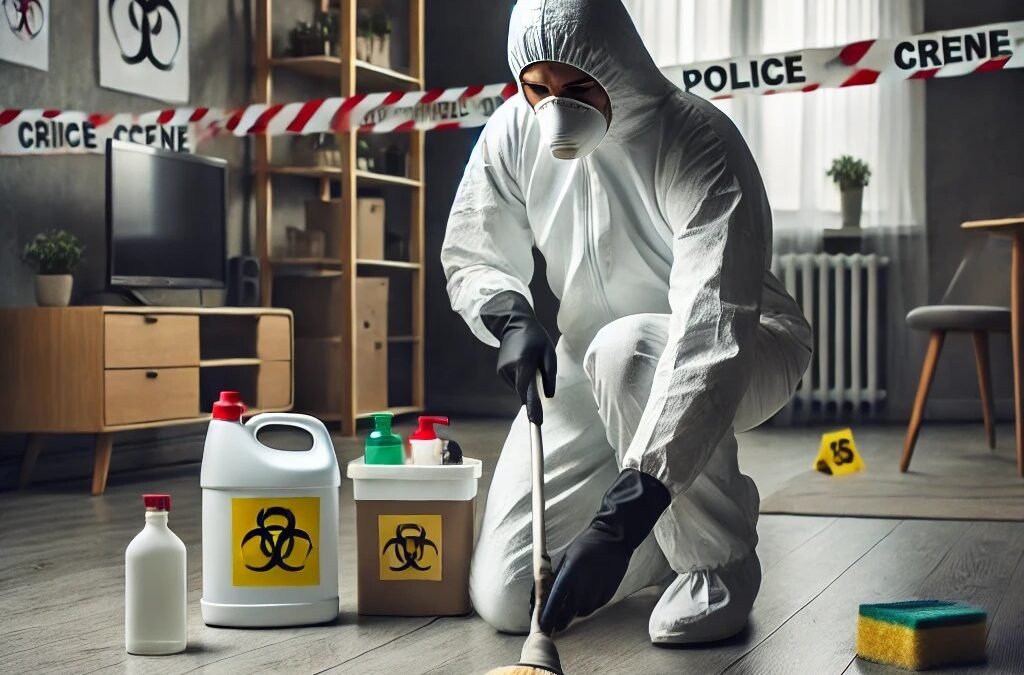Crime scene clean up is a highly specialized and demanding job that goes beyond simple cleaning. When a traumatic event such as a crime, accident, or unattended death occurs, the aftermath can leave behind dangerous biohazardous materials, including blood, bodily fluids, and other contaminants. Cleaning up these scenes is not only crucial for health and safety but also for helping those affected begin to move forward.
What Is Crime Scene Clean Up?
Crime scene clean up involves the removal and decontamination of biohazardous materials at the scene of a traumatic event. This process is far more intensive than regular cleaning, requiring specialized knowledge, equipment, and adherence to strict health and safety protocols. The primary goal is to thoroughly disinfect and restore the area, making it safe for use again.
These professionals handle a variety of scenarios, including:
- Crime scenes such as homicides, assaults, and other violent incidents.
- Accidental deaths or injuries, including suicides.
- Unattended deaths, where the body has been undiscovered for some time.
- Trauma scenes that involve bloodborne pathogens or hazardous materials.
Why Professional Clean Up Services Are Necessary
Cleaning up a crime scene is not something that friends or family members should attempt. This task requires a meticulous approach, specialized training, and the use of industrial-grade disinfectants and protective gear. Here’s why hiring a professional crime scene clean up service is essential:
- Health Risks: Blood and bodily fluids can contain harmful pathogens, such as HIV, Hepatitis B, and other viruses. Only trained professionals have the knowledge and equipment to safely handle and dispose of these contaminants.
- Thorough Sanitization: Crime scene cleaners are trained to detect and remove all traces of biohazardous materials, including those hidden within porous surfaces like carpets and walls. Their expertise ensures that the area is fully decontaminated, preventing potential health hazards.
- Emotional Impact: Cleaning up after a traumatic event can be extremely distressing for those directly affected. Professional cleaners provide a compassionate service, allowing families and loved ones to focus on healing rather than confronting the scene.
The Process of Crime Scene Clean Up
The process typically begins with an assessment of the scene to determine the extent of contamination. Crime scene cleaners then wear personal protective equipment (PPE) to safeguard against exposure. Using specialized tools and cleaning agents, they remove any visible biohazards and sanitize the area, including walls, floors, and furniture. Finally, any biohazardous waste is properly contained and disposed of according to legal regulations.
Crime scene clean up is an essential service that goes beyond cleaning—it’s about restoring safety and providing a sense of closure to those affected by trauma. Professional cleaners play a crucial role in ensuring that contaminated areas are thoroughly disinfected, safeguarding public health and allowing families to focus on the emotional recovery process.

